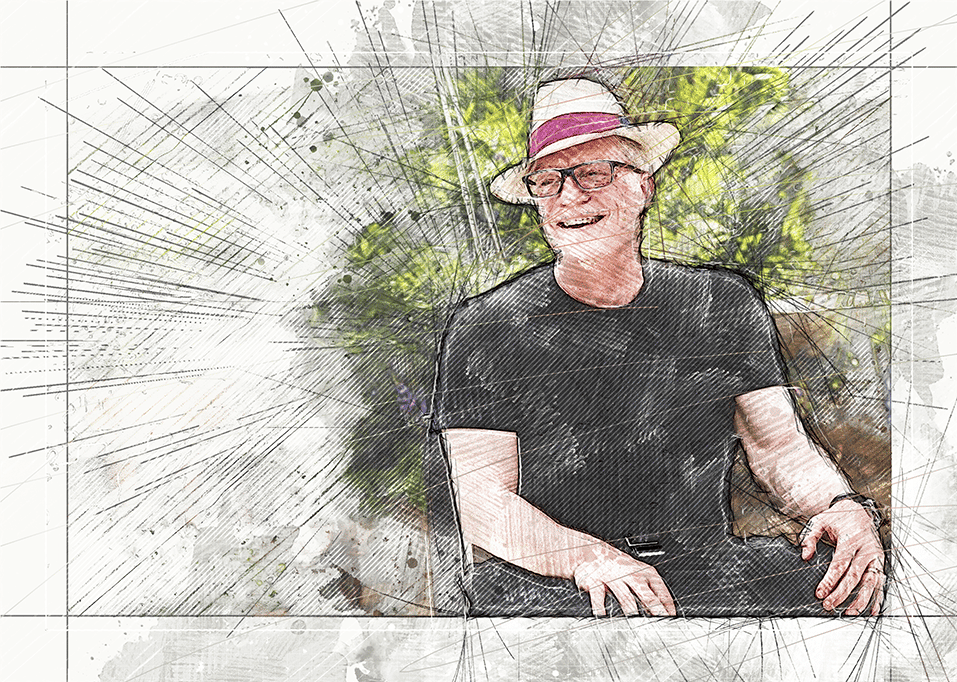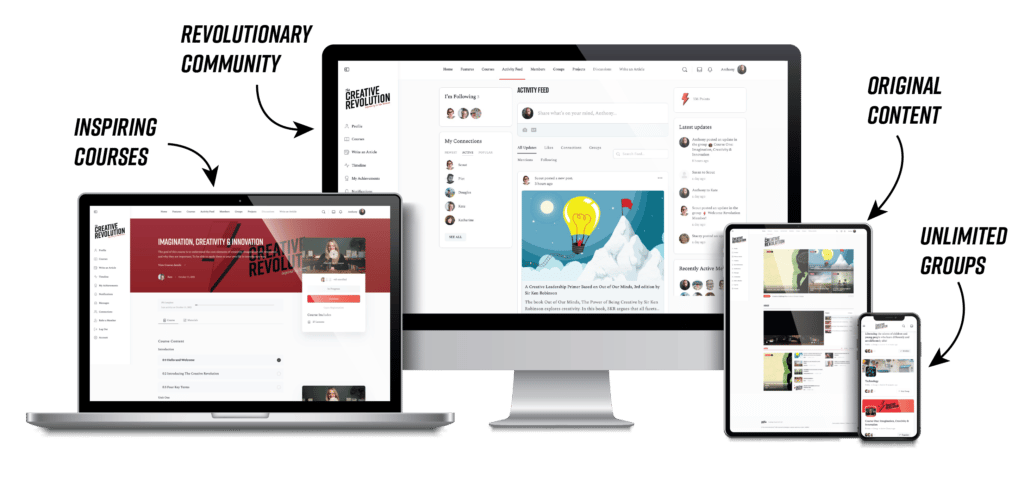The Revolutionary:
Name: Sir Ken Robinson
Born: 4 March 1950
Place of Birth: Liverpool, England
Died: 21 August 2020
Best Known For: Having the most watched TED Talk of all time; Championing creativity; Challenging education systems globally; Sense of humor
Core Beliefs:
Creativity is as important as literacy; Human ecosystems depend upon a diversity of skills, talents and passions; Education should help children understand the world around them and the talents within them; We have come to a critical pass
Iconic Quotes:
The more complex the world becomes, the more creative we need to be to meet its challenges.
If you’re not prepared to be wrong, you’ll never come up with anything original.
As we face a very uncertain future, the answer is not to do better what we've done before. We have to do something else.
In a literal sense, we create the worlds we live in. We can also re-create them. The great revolutions in human history have often been brought about by new ideas: by new ways of seeing that have shattered old certainties.
The impossible yesterday is routine today. Wait until tomorrow.
What you do for yourself dies with you when you leave this world, what you do for others lives on forever.
Biography:
Sir Ken Robinson was born in Liverpool in 1950, to a working class family. One of seven children, Sir Ken developed polio at the age of 4, which left him with a physical disability for the rest of his life. Polio also meant that he attended a special education school, and, because he would not be able to have the type of manual labor career that might otherwise have been expected of him, he was encouraged to focus on his education. From 1968-1971 he studied English and drama (BEd) at Bretton Hall College of Education, University of Leeds and went on to complete his PhD in 1981 at the University of London, researching drama and theater in education.
Sir Ken married Terry Watts in 1981 and they had two children together: a son, James (b. 1984) and a daughter, Kate (b. 1989).
For twelve years, Robinson was professor of arts education at the University of Warwick in the UK before becoming professor emeritus. In 1999, he led a national commission on creativity, education and the economy for the UK Government. All Our Futures: Creativity, Culture and Education (The Robinson Report) was published to wide acclaim.
He was the central figure in developing a strategy for creative and economic development as part of the Peace Process in Northern Ireland, working with the ministers for training, education, enterprise and culture. The resulting blueprint for change, Unlocking Creativity, was adopted by politicians of all parties and by business, education and cultural leaders across the Province. He was one of four international advisors to the Singapore Government for its strategy to become the creative hub of Southeast Asia, and the guiding force in Oklahoma’s statewide strategy to cultivate creativity and innovation in culture, commerce and education.
In 2001 Robinson became Senior Advisor to the President of the Getty Center, and he and his family moved to Los Angeles, California. Sir Ken left the Getty in 2006 and went on to become one of the world’s most sought after public speakers, and a best-selling author.
Impact:
Sir Ken Robinson was named as one of Time/Fortune/CNN’s ‘Principal Voices’. He was acclaimed by Fast Company magazine as one of “the world’s elite thinkers on creativity and innovation” and was ranked in the Thinkers50 list of the world’s top business thinkers.
In 2003, he received a knighthood from Queen Elizabeth II for his services to the arts. Sir Ken was also involved in many organizations and charities, and was a Patron of the Lynne and Land Foundation, The Place, Think Equal, Earlyarts, The Institute of Imagination, DaDaFest, Everton Free School and Sixth Form College, Darcey Bussell’s DDMix and the Polka Theatre. He was a Board Member of MindUp and an Eden Project Ambassador.
His book The Element: How Finding Your Passion Changes Everything (Penguin/Viking, 2009) is a New York Times bestseller. It has been translated into 23 languages and has sold over a million copies worldwide. His TED Talk “Do Schools Kill Creativity” is still the most watched of all time.
Sir Ken inspired millions of people around the world by letting them know that it wasn’t them, or their children or loved ones, who were broken, but the system. As one fan of his wrote: “I felt heard even though I hadn’t spoken.”
Sir Ken gave a voice to those who felt alienated by traditional systems of education and provided hope through an alternative vision of a system that embraced the diversity of skills and passions that make human beings so unique.
He was a visionary, a change-maker, and a true revolutionary.
Three Tips from a Revolutionary:
Authenticity is key:
Sir Ken was known for being as sincere off the stage as he was on the stage. His message stayed the same regardless of his audience, and his life’s work was his true passion.
In short, Sir Ken was the real deal. His authenticity taught us that the best way to make an impact is to stay true to yourself.
Humor helps the medicine go down:
One reason for Sir Ken’s huge popularity is that what he said was so important. Another reason is that how he said it was so accessible.
Sir Ken could make you laugh while hitting you with some serious truths. He made difficult topics digestible, and entertaining, and perhaps most importantly: memorable.
Treat people with respect:
One of Sir Ken’s secrets to successful public speaking was that he went out and spoke to people as people. He didn’t talk down to his audiences.
He also made time for each and every person he met, and treated them with a respect and courtesy that is often hard to come by these days. Whether a CEO or an entry level worker, Sir Ken made everyone he spoke to feel like the most important person in the room, because to him they really were.
It turns out that kindness really is king.
Essential Reading:
Out of Our Minds: The Power of Being Creative (Wiley, 2016)
The Element: How Finding Your Passion Changes Everything (Penguin, 2009)
Imagine if: Creating a Future for Us All (Penguin, 2022)
Essential Viewing:
Essential Listening:
This article is a part of our monthly “Portrait of a Revolutionary” series, in which we look at some of the influential figures who have created real change in the world. These revolutionaries span both time and geography, but what they have in common is that they took action. They are the individuals who sent electrical currents through our societies, who created paradigm shifts, and who sparked global movements.




